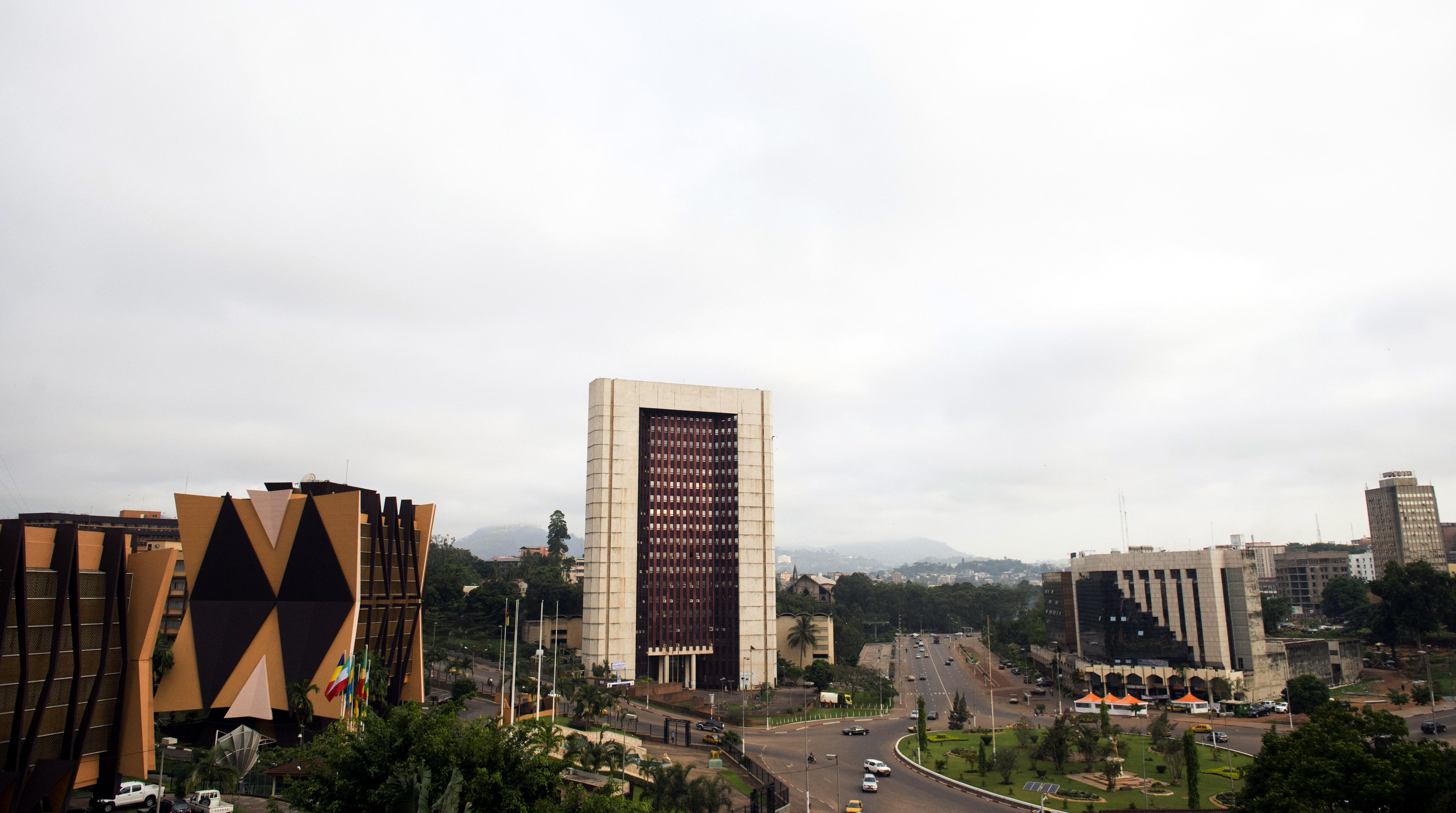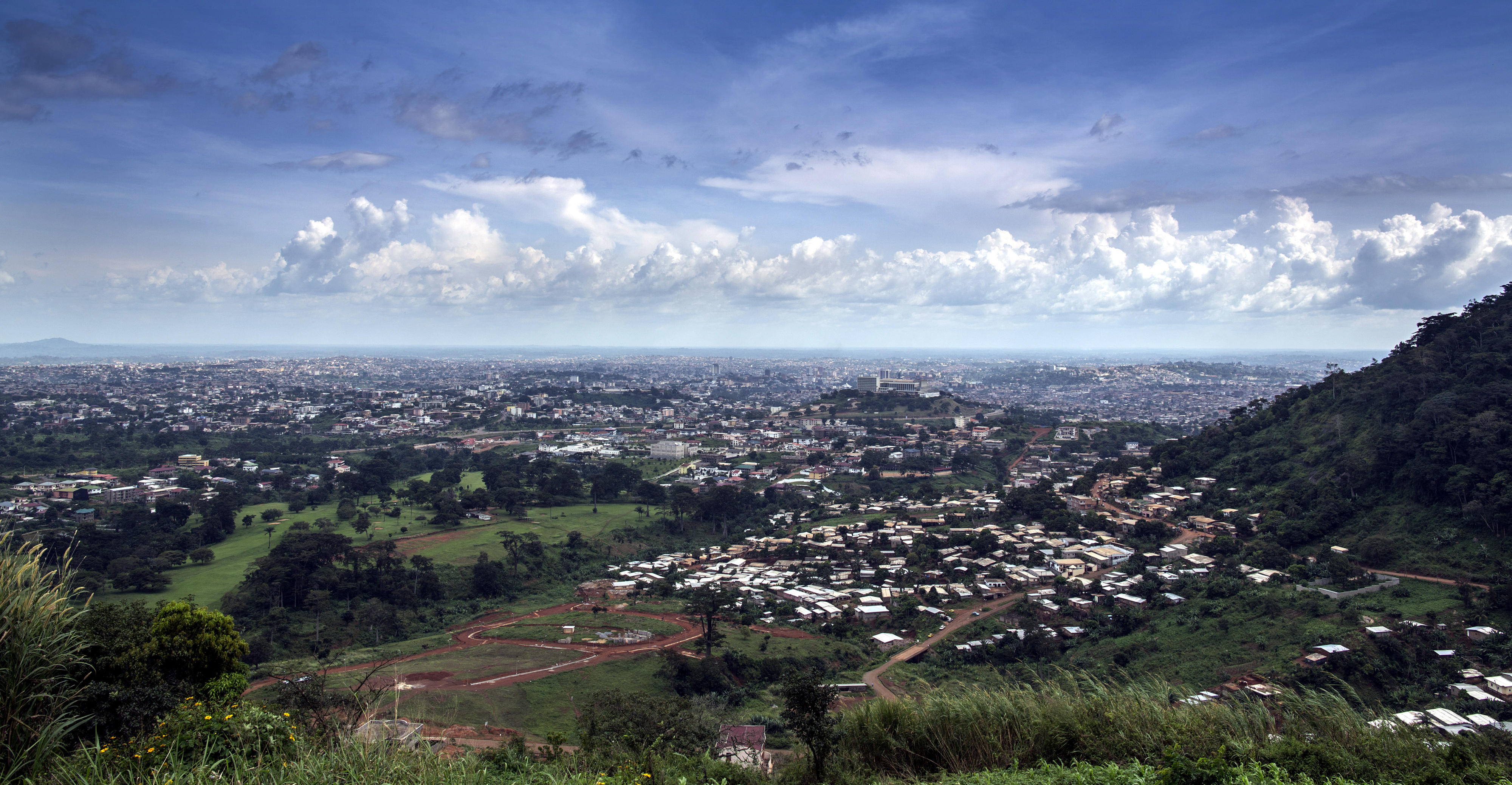Political situation Little progress on the road to sustainable development
City view of Yaoundé, capital of Cameroon
President Paul Biya has been in office since 1982. In October 2018, at age 85, he was re-elected for another seven-year term. The government and administrative system are plagued by deep-seated clientelism and corruption. Elections have been scheduled for 2025, and there have been repeated reports that President Biya is in poor health. In view of this, various players are positioning themselves for the struggle over who will succeed the president. The uncertain future is hampering urgently needed reforms. The rising tensions are evident, not least, from a marked increase in hate speech and disinformation on social media.
The 2023 Corruption Perceptions Index (External link) published by the non-governmental organisation Transparency International ranked Cameroon 140th out of the 180 countries assessed.
The country has a diverse civil society which is active in many social areas. However, its activities are hampered by government repression – for example strict registration requirements, bans on rallies, the blocking of websites, and media censorship.
Ambitious goal, weak delivery
In its “Vision 2035” strategy, Cameroon has adopted the goal of becoming an emerging economy by 2035. In November 2021, the country also adopted a new national development strategy. It envisages a surge in industrial development by 2030, based mainly on domestic products and creating many jobs.
The government is committed to the goals of the 2030 Agenda and the African Union's Agenda 2063. However, in practice, sustainable development approaches are only being applied to a limited extent. Overall, the Cameroonian government's practical efforts for development are not living up to the ambitious goals it has adopted. Accordingly, the latest Sustainable Development Report does not note any progress on most Sustainable Development Goals.
Domestic crisis
Within a region that is fragile overall and characterised by military coups and increasing anti-Western sentiment, Cameroon is one of the relatively stable countries. However, conflicts in the English-speaking Northwest and Southwest Regions and in the Far North Region are posing a threat to this stability. This is compounded by the uncertainty over who will succeed President Biya, a question that must be expected to arise in the foreseeable future.
According to United Nations figures, there are about 2.1 million displaced people in Cameroon. It is estimated that about one million people from conflict regions have been internally displaced. Only 700,000 have so far been able to return home (as at December 2025).
In addition, there are about 410,000 refugees and asylum seekers, mainly from the Central African Republic and Nigeria. Meeting their needs is presenting local communities with great challenges. About 3.4 million of the country's approximately 29 million people are themselves in need of humanitarian assistance (see also Social situation).
In the English-speaking Northwest and Southwest Regions, separatist groups have been fighting since 2016 for a greater say in decision-making and for the areas to form an independent country, the “Republic of Ambazonia”. In the last few years, the conflict has claimed more than 6,000 lives. It is being exacerbated by criminal players who are using the power vacuum for their own ends. The protracted nature of the conflict, grave human rights violations committed by both sides, and the poor humanitarian situation are putting strain on social and political cohesion between the two regions and the central government.
The government under President Biya launched a “Major National Dialogue” in 2019, took a few significant initial steps towards decentralisation and announced the reconstruction of infrastructure. However, Biya has rejected the idea of returning to a federal system that would give far more decision-making powers to the regions. At present, there are no grounds for expecting a political solution to the conflict. Mediation efforts by third countries have failed. Due to the high level of military expenditure, sectors that would be important for national development continue to be underfunded.
Terrorism in the North
The security situation is critical in the Far North Region, too. Terrorist attacks by the Islamist Boko Haram group have increased significantly since 2020. Cameroon has formed a multinational force (Multinational Joint Task Force, MNJTF) together with Nigeria, Niger, Chad and Benin in order to fight Boko Haram. Even though the force has achieved some successes, the situation continues to be dangerous in many areas, undermining much-needed development work.
As at: 27/02/2024

